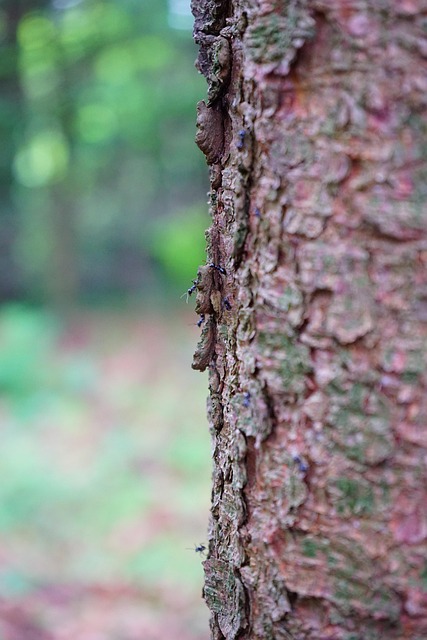Understanding ant behavior is crucial for effective pest control for ants. These organized creatures form complex colonies with distinct roles, navigating using pheromone trails and attracted to moisture and sweet substances. Targeted strategies like baiting systems, sanitation, and natural repellents disrupt their communication, access points, and food sources, reducing populations and preventing infestations. Professional pest controllers use tailored methods for specific species, combining techniques like heat treatments and minimal residual insecticides with preventive measures like sealing entry points and regular cleaning to offer long-lasting, eco-friendly solutions for pest control for ants.
Ant infestations can disrupt homes and businesses, but professional ant control offers effective solutions. Understanding ant behaviors and identifying specific species is key to successful management. This article explores various ant control methods—from traditional to modern strategies—including eco-friendly options for sustainable environments. We dispel common misconceptions and present real-world case studies, providing a comprehensive guide to pest control for ants. Learn how professionals navigate infestations and maintain ant-free spaces.
Understanding Ant Behaviors and Habits
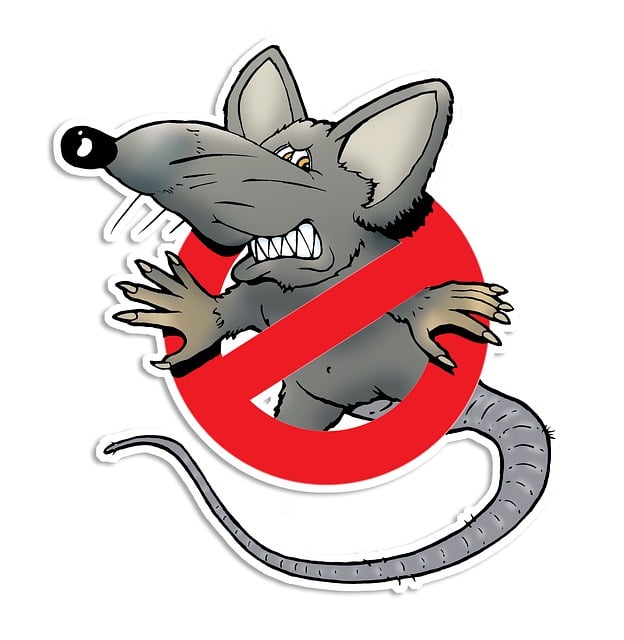
Understanding ant behaviors is a crucial aspect of effective pest control for ants. Ants are highly organized and efficient creatures, forming colonies with complex social structures. Each colony member has specific roles, such as workers gathering food, soldiers defending the nest, and queens responsible for reproduction. This intricate system allows them to establish nests in various environments, from forests to urban areas.
Ants leave a chemical trail called pheromones to communicate with each other, leading fellow ants to sources of food or new territories. They are also attracted to moisture and sweet substances, which can draw them into homes and buildings. By recognizing these behaviors, pest control for ants can be tailored to disrupt their communication, access points, and food sources, ultimately reducing their population and preventing infestations.
Identifying Common Ant Species in Residential and Commercial Settings
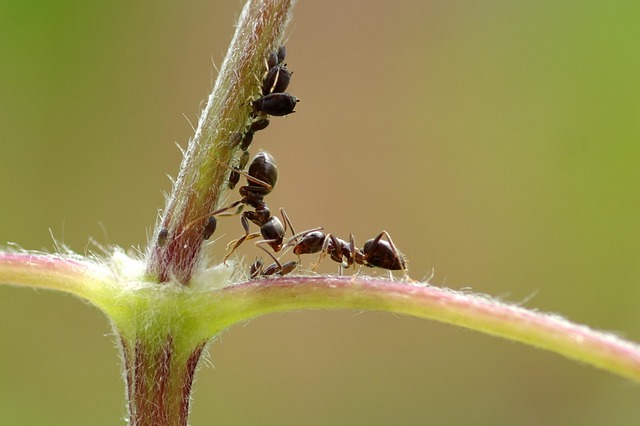
In residential and commercial settings alike, effective pest control for ants begins with identifying the specific species infesting an area. Common ant species include the odorous ant, carpant (or wood-eating) ant, and fire ant, each presenting unique behaviors and requirements for eradication. Odorous ants, known for their distinct coconut-like scent, are often found in kitchens and are attracted to food sources. Carpants, as their name suggests, bore into wooden structures, causing structural damage over time. Fire ants, aggressive and painful biters, tend to nest in open soil areas and can quickly multiply.
Understanding these species’ habits and preferences allows for tailored ant control strategies. Professional pest controllers employ a range of methods, from baiting systems to targeted treatments, to address each species effectively. Regular inspections are crucial to early detection, preventing infestations from becoming established and costly to manage.
Traditional Ant Control Methods: What Works and What Doesn't
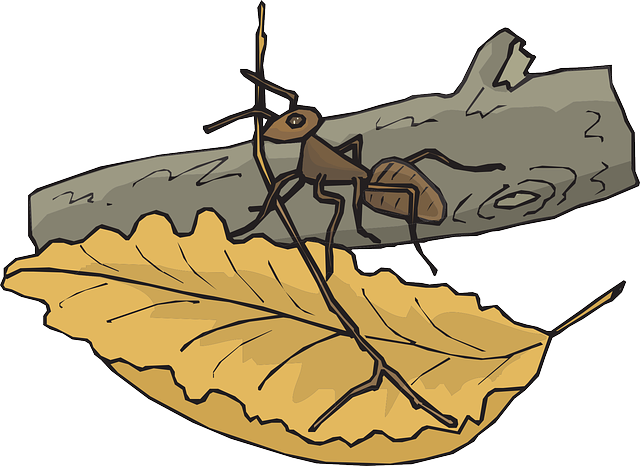
Traditional ant control methods have long relied on chemical pesticides, but their effectiveness and environmental impact are increasingly being questioned. While quick fixes like spraying can eliminate visible ants, they often fail to address the root causes—ant colonies hidden deep within walls or structures. These chemicals also pose risks to non-target species, including beneficial insects and pets, leading many to seek alternative, safer solutions for pest control for ants.
What works better are integrated pest management (IPM) strategies that combine multiple tactics such as sanitation, trap deployment, and biological controls. For instance, maintaining a clean environment by promptly addressing spills and sealing entry points can significantly deter ants. Traps using baits with natural ingredients like boric acid or protein-based substances offer a more targeted approach, killing worker ants without harming colonies or other organisms. Biological controls, such as introducing specific ant species’ parasites or predators, also provide eco-friendly options for managing ant infestations.
Modern Pest Control for Ants: Professional Strategies and Tools
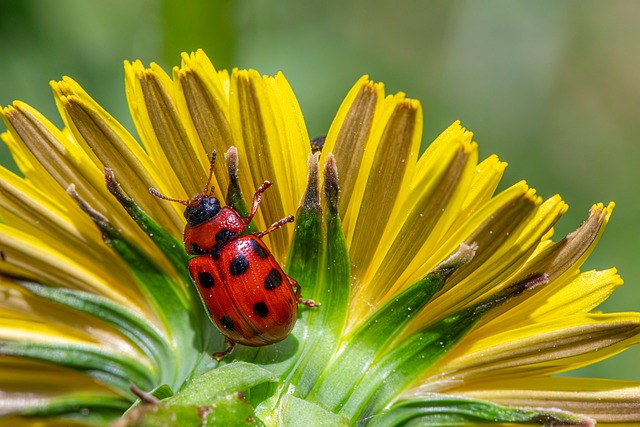
In today’s world, modern pest control for ants involves a sophisticated blend of professional strategies and cutting-edge tools designed to address the complex behavior and biology of these persistent intruders. Professionals employ advanced techniques such as baiting systems that target ant colonies directly, utilizing synthetic pheromones to attract and eliminate them. These methods are safe for humans and pets while being highly effective in eradicating even the most established ant populations.
Additionally, professional pest control services leverage technology like heat treatments and residual insecticides to create a barrier against future infestations. Trained technicians carefully apply these treatments, ensuring minimal environmental impact and adhering to strict safety protocols. By combining these modern approaches, pest control for ants becomes both efficient and eco-conscious, providing long-lasting solutions for commercial and residential properties alike.
Preventive Measures: Long-Term Solutions for Ant Infestations
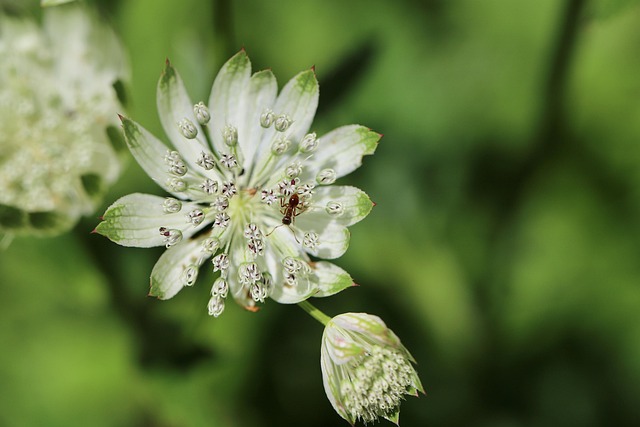
Preventive measures are key in managing and eliminating ant infestations, offering long-term solutions for those seeking effective pest control for ants. By understanding how ants gain entry into homes or buildings, it’s possible to implement strategies that disrupt their presence. Sealing entry points like gaps around pipes, windows, and doors is a physical barrier that can prevent ants from easily accessing indoor spaces. Regular cleaning and sanitation practices, including wiping down surfaces, sweeping floors, and ensuring food is stored securely, remove attractive environments for ant colonies.
Additionally, maintaining landscaping by trimming trees and shrubs away from buildings, removing fallen branches, and clearing debris helps deter ants from finding hiding spots and sources of food near homes. Using natural repellents like citronella or lavender in gardens can also serve as a non-toxic deterrent. These measures work together to disrupt ant pathways and discourage them from establishing colonies, providing effective long-term pest control for ants.
Eco-Friendly Ant Control Options for Safe and Sustainable Environments

In today’s world, where environmental sustainability is a growing concern, many professionals and homeowners are seeking eco-friendly ant control options that ensure safe and healthy environments. Traditional pest control for ants often relies on toxic chemicals that can have detrimental effects on non-target organisms, including beneficial insects and wildlife. However, modern solutions offer more sustainable approaches to managing ant infestations without compromising the well-being of our ecosystem.
One such method is the use of natural repellents and biological controls. Essential oils like peppermint, citronella, and neem oil have proven effective in deterring ants due to their strong scents, which ants find unpleasant. Additionally, introducing beneficial insects, such as certain species of wasps that parasitize ant larvae, can help control ant populations organically. Integrated Pest Management (IPM) strategies, which combine these natural methods with minimal use of synthetic chemicals, offer a balanced approach to pest control for ants, ensuring both effective management and environmental preservation.
Common Misconceptions About Ant Control and How to Avoid Them
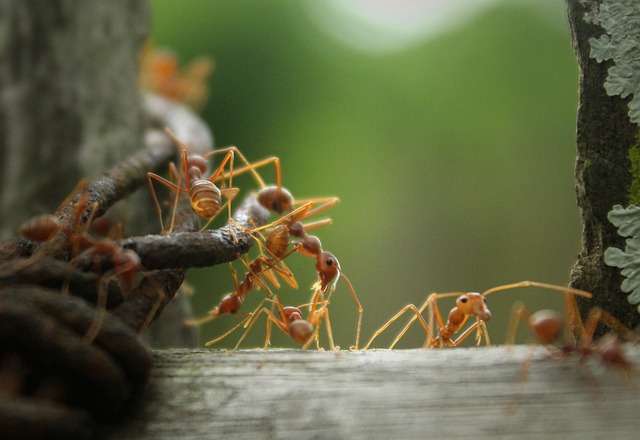
Many homeowners hold onto several misconceptions about ant control, which often prevents them from effectively addressing or eliminating ant infestations. One common misunderstanding is that ants only need to be seen on the surface to be treated; however, this couldn’t be further from the truth. Ants live and breed in complex underground networks, so visible activity at the surface is just a small part of their presence. Effective ant control for homes requires understanding these hidden colonies and the routes they take.
Another misconception is that DIY solutions are as effective as professional services. While there are over-the-counter pest control products available, ants can quickly develop resistance to common chemicals. Moreover, some DIY methods only target the visible ants and fail to disrupt the queen or her colony. Professional ant control experts use a range of safe and efficient techniques, including baiting systems that attract and eliminate worker ants while also communicating with the queen. This comprehensive approach ensures the colony is disrupted at its core, providing long-lasting protection against future ant invasions.
Case Studies: Successful Ant Control Campaigns in Real-World Scenarios
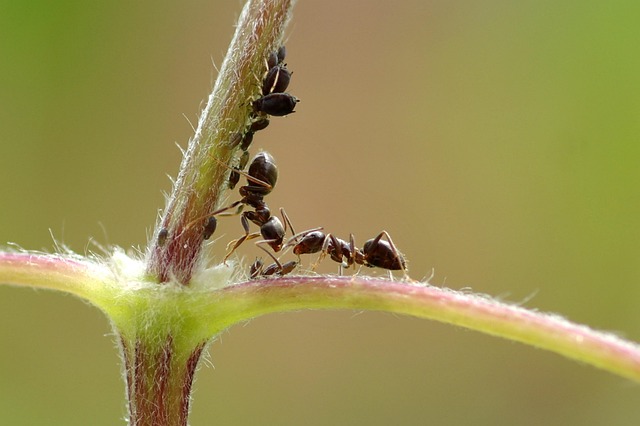
In the realm of professional pest control, successful ant control campaigns serve as illuminating case studies, offering valuable insights into effective strategies. These real-world scenarios paint a vivid picture of how specialized treatments can mitigate and eradicate ant infestations, showcasing the expertise of certified technicians. From commercial properties to residential areas, each campaign presents unique challenges, but proven methods consistently emerge—integrating targeted insecticides, sealing entry points, and implementing preventive measures.
For instance, consider a metropolitan area where a bustling restaurant faced an onslaught of ants, disrupting its hygiene standards. A professional pest control service was called in, conducting thorough inspections to identify the ant species and their trails. They implemented a multi-pronged approach: applying eco-friendly insecticides along the walls and floors, sealing gaps around utility pipes and doors, and educating staff on maintaining cleanliness. Within weeks, the ant population diminished significantly, and the restaurant regained its sanitary reputation—a testament to the power of tailored, professional pest control for ants.
